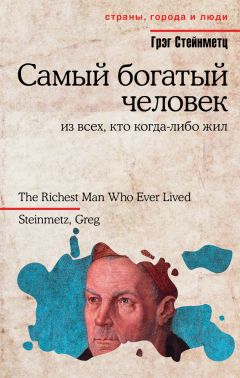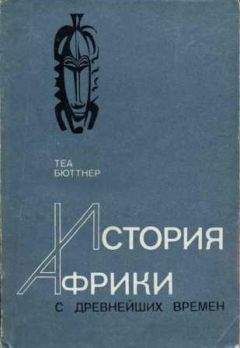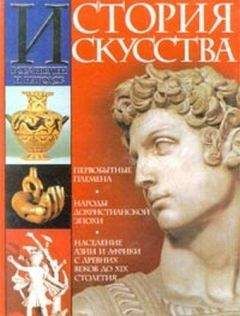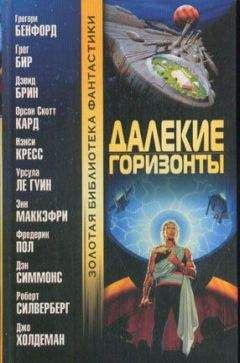Утверждение, что Якоб является самым влиятельным бизнесменом в истории, выдвинуто не мною. Джеймс Уэстфолл Томпсон, профессор университета Чикаго на протяжении 37 лет и президент Американской исторической ассоциации, заявил об этом в своей книге «Экономическая и социальная история Европы в позднем Средневековье» (1931). После изучения фактов стало ясно, что Томпсон прав и что это, более всего остального, объясняет, почему Фуггера следует представить массовому читателю. Для подсчета капитала Фуггера я применил методологию, которую почерпнул из статьи 2007 года в «Нью-Йорк таймс». Эта статья, основанная на книге Майкла Клеппера и Роберта Гантера (1996), сравнивала «нетто-стоимость» персоны с размерами экономики, в условиях которой он подвизался, – и называла Джона Д. Рокфеллера богатейшим американцем всех времен. Метод оказался ошибочным. Как указал мне друг, самым богатым человеком в таком случае нужно признать библейского Адама, который вместе с Евой владел всеми богатствами земли. Но сама идея мне понравилась, поскольку она «выравнивает» экономические ландшафты разных эпох. Если оценивать стоимость Фуггера в золоте – этот метод позволяет учитывать инфляцию, – получится, что Якоб «стоил» всего 50000000 долларов, как успешный девелопер или продавец автомобилей с несколькими филиалами. Это ведь неверно, правда?
Отдельно благодарю бывшего профессора университета Колгейт Дирка Хоффманна. Дирк учил меня немецкому более тридцати лет назад, а в ходе работы над книгой помог «расшифровать» Пельница, письма Фуггеров к герцогу Георгу и памфлеты фон Гуттена. Также Дирк неоднократно вносил советы по содержанию книги. Отпечатки его пальцев буквально покрывают страницы рукописи. Морин Мэннинг, Джейн Рид и остальной персонал библиотеки Университетского клуба в Нью-Йорке подбирали мне по четыре книги в день. Я никогда бы не закончил текст без их поддержки. Присцилла Пэйнтон из издательства «Саймон & Шустер» сразу поняла, чем ценна история Фуггера, и часто догадывалась о смысле моих фраз прежде меня самого. Ее острый карандаш избавил текст от множества корявых формулировок. Дэвид Кун – просто идеал литературного агента. Боб Гольдфарб и мои коллеги в компании «Руэйн, Канлифф & Гольдфарб» заставляли меня задуматься своими острыми вопросами.
Читательский круг – Юлия Стейнметц, Арт Стейнметц, Джон Бенше, Роберт Клаймер, Дуг Лавин и Мартин Уле – изучал текст на ранних стадиях и обеспечивал шикарную обратную связь. Тобиас Доуз, Регина Возница и мой кузен Роберт Рихтер помогали с исследованиями. Кэтрин Минеар и Клаудия и Андре Кастайбер проверяли французскую «составляющую». Все оставшиеся ошибки – на моей совести.
Ackroyd, Peter. Venice: Pure city. New York: Doubleday & Co., 2009.
Adamski, Margarete. Herrieden Kloster, Stift und Stadt im Mittelalter. Kallmuenz ueber Regensburg: Buchdruckerei Michael Lassleben. 1954.
Andrean, Linda. Juana the Mad: Queen of a World Empire. Minneapolis: University of Minnesota Center for Austrian Studies. 2012.
Aram, Bethany. Juana the Mad. Baltimore, Maryland: John Hopkins. 2006.
Bainton, Roland. Here I Stand. Peabody, Mass: Hendrickson Publishers. 1950.
Ball, Philip. The Devil’s Doctor: Paracelsus and the World of Renaissance Magic and Science. New York: Farrar, Strauss and Giroux. 2006.
Barstow, Anne. Witchcraze. A New History of European Witch Hunts. New York: Harper Collins. 1995.
Baum, Wilhelm. Sigismund der Muenzreiche: Zur Geschichte Tyrols und der habsburgischen Laender im Spaetmittelalter. Bozen, Austria. Verlaganstalt Athesia. 1987.
Baumgartner, Frederic J. France in the 16th Century. New York: St. Martin’s Press. 1995.
Bax, Ernest Belfort. The Peasants War in Germany. London: Swan Sonnenschein & Co. 1899.
Bax, Ernest Belfort. German Society at the Close of the Middle Ages. London: Swan Sonnenschein & Co. 1894.
Beatis, Antonio de. The Travel Journals of Antonio de Beatis. London: The Hakluyt Society. 1979.
Benecke, Gerhard. Maximilian I. London: Routledge & Kegan Paul. 1982.
Blickle, Peter. The Revolution of 1525. Baltimore: John Hopkins University Press. 1985.
Black, Jeremy. A Brief History of Slavery. Philadelphia: Running Press Book Publishers. 2011.
Blanchard, Ian. The International Economy in the “Age of the Discoveries”, 1470–1570.
Blockmans, Wim. Emperor Charles V: 1500–1558. London: Arnold. 2002.
Brotton, Jerry. The Renaissance Bazaar: From the Silk Road to Michelangelo. Oxford: Oxford University Press. 2002.
Brandi, Karl. The Emperor Charles V. London: Jonathan Cape. 1939.
Brant, Sebastian. The Ship of Fools. New York: Dover Publications. 1944.
Bryce, James. The Holy Roman Empire. Oxford: T. & G. Shrimpton. 1864.
Chamberlin, E.R. The Bad Popes. New York: Dorset. 1969.
Chauffeur-Kestner, Victor. Ulrich Von Hutten: Imperial Poet and Orator. Edinburg: T. & T. Clark. 1863.
Cliff, Nigel. Holy War: How Vasco da Gama’s Epic Voyages Turned the Tide in a Centuries-Old Clash of Civilizations. New York: Harper Collins. 2011.
Cosman, Madeleine Pelner. Medieval Holidays and Festivals. New York: Charles Scribner’s Sons. 1981.
Coxe, William. The History of the House of Austria, Volume I. New York: Arno Press. 1971.
Crowley, Roger. Empires of the Sea. New York: Random House. 2009.
Crowley, Roger. City of Fortune: How Venice Rules the Seas. New York: Random House. 2013.
Dauser, Regina and Ferber, Magnus. Die Fugger und Welser. Augsburg: Verlagsgemeinschaft Augsburg. 2010.
Denuce, Jean. Magellan: La Question des Moluques et la Premiere Circumnavigation du Globe. Academie Royale De Belgique. Memoires. Vol. 4. 1908–1911.
Deutsche Reichsakten. Gotha, Germany: F.A. Perthes. 1893.
Gregor, Nagler. Das Wegwerfen ist ja ein Irrglaube: Doblhoff, Raimund von, Architekt zwischen Rekonstruktion und Innovation, Lutz, Werner, editor. Berlin: Dietrich Reimer Verlag. 2009.
Dollinger, Philippe. The German Hansa. Palo Alto, California: The Stanford University Press. 1970.
Donavin, Georgiana, Poster, Carol, Utz, Richard, editors. Medieval Forms of Argument. Eugene, Oregon: Wipf and Stock Publishers. 2002.
Duby, Georges. The Early Growth of the European Economy. Ithaca, New York: Cornell University Press. 1973.
Eberhard Unger, Eike. Die Fugger in Hall. Tuebingen: J.C.B. Mohr. 1967.
Ehrenberg, Richard. Capital and Finance in Age of the Renaissance. New York: Harcourt, Brace & Company. 1923.
Erlanger, Philippe. The Age of Courts and Kings: Manners and Morals, 1558–1715. Garden City. Anchor Books. 1970.
Erlichman, Howard. Conquest, Tribute and Trade: The Quest for Precious Metals and the Birth of Globalization. Amherst, New York: Prometheus Books. 2010.
Fagin, Dan. Toms River: A Story of Science and Salvation. New York: Random House. 2013.
Ferguson, Niall. The House of Rothschild, Penguin, New York, 1998.
Flynn, Thomas. Men of Wealth: The Story of Twelve Significant Fortunes from the Renaissance to the Present Day. New York: Simon & Schuster. 1941.
Frey, Albert Romer. A Dictionary of Numismatic Names. New York: American Numismatic Society. 1917.
Freytag, Gustav. Pictures of German Life in the XVth, XVIth, and XVIIth Centuries, Volume 1. London: Chapman and Hall. 1862.
Frisch, Werner. Ulrich von Wuerttemberg: Herzog und Henker. Erfurt: Sutton Verlag. 2011.
Gaiser, Horst. Jakob Fugger und Lamparter: Wandmalerei, uneheliche Kinder, Zinstreit. Bayern, Schwaben und das Reich. Festschrift fuer Pankraz Fried zum 75 Geburtstag. Augsburg: P. Fassl. 2007.
Garlepp, Hans-Hermann. Der Bauernkrieg von 1525 um Biberach a. d. Riss. Frankfurt: Verlag Peter Lang. 1987.
Geffcken, Peter. Jakob Fuggers frьhe Jahre, Jakob Fugger (1459–1525): Sein Leben in Bildern. Augsburg. 2009.
Geir, Solem. The Historical Price of Silver. http://blog.elliottwavetechnician.com/2010/06/historical-price-of-silver-from.html.
Gies, Frances. The Knight in History. New York: Harper & Row. 1984.
Gies, Joseph and Frances. Life in a Medieval City. New York: Harper & Row. 1969.
Gies, Joseph and Frances. Merchants and Moneymen: The Commercial Revolution, 1000–1500. New York: Thomas Y. Cromwell. 1972.
Gladwell, Malcolm. Outliers: The Story of Success. New York: Little, Brown & Company. 2008.
Goertz, Hans-Juergen, editor. Profiles of Radical Reformers: Biographical Sketches from Thomas Muentzer to Paracelsus. Kitchener, Ontario: Herald Press. 1982.
Greenfield, Kent Roberts. Sumptuary Laws of Nuremberg. Baltimore: John Hopkins University Press. 1918.
Greif, B. Tagebuch des Lucas Rem aus den Jahren 1494–1541. Augsburg: J.N. Hartmann’schen Buchdruckerei. 1861.
Groebner, Valentin. Liquid Assets, Dangerous Gifts, Presents and Politics at the End of the Middle Ages. Philadelphia: University of Pennsylvania Press. 2002.
Haeberlein, Mark. The Fuggers of Augsburg. (1367–1650). Charlottesville, Virginia: University of Virginia Press. 2012.
Haebler, Konrad. Die Geschichte der Fuggerschen Handlung in Spanien. Weimar: Verlag von Emil Felber. 1897.
Haliczer, Stephen. The Comuneros of Castile. Madison, Wisconsin: University of Wisconsin Press. 1981.
Haller, J. The Epochs of German History. New York: Harcourt, Brace and Co. 1930.
Heal, Bridget and Grell, Ole Peter. The Impact of the European Reformation: Princes, clergy and people. Burlington, Vermont: Ashgate Publishing 2008.
Herberger, Theodor. Conrad Peutinger in seinem Verhaltnisse zum Kaiser Maximilian I. Augsburg: F. Butsch. 1851.
Howell, Martha. Commerce before Capitalism in Europe, 1300–1600. New York: Cambridge University Press. 2010.
Howell, Martha C. The Marriage Exchange. Chicago: University of Chicago Press. 1998.
Huemmerich, Franz. Die Erste Deutsche Handelsfahrt nach Indien, 1505/1506: Ein Unternehmen der Welser, Fugger und Andere. Munich: Verlag von R. Oldenburg. 1902.
Huizinga, Johan. The Autumn of the Middle Ages. Chicago: University of Chicago Press. 199.
Hunt, Edwin S. The Medieval Super Companies: A Study of the Peruzzi Company of Florence. Cambridge, U.K.: Cambridge University Press. 1994.
James, Pierre. The Murderous Paradise: German Nationalism and the Holocaust. Greenwood Publishing Group. 2001.
Jansen, Max. Die Anfдnge der Fugger. Leipzig: Verlag von Duncker & Humboldt. 1907.
Jansen, Max. Jakob Fugger. Leipzig: Verlag von Duncker & Humboldt. 1910.
Jardine, Lisa. Worldly Goods: A New History of the Renaissance. New York: W.W. Norton & Co. 1996.
Johnson, Paul. A History of the Jews. New York: Harper & Row. 1987.
Klassen, Walter. Michael Gaismair: Revolutionary and Reformer. Leiden: E.J. Brill. 1978.
Kellenbenz, Hermann. The Rise of the European Economy: An Economics History of Continental Europe: 1500–1750. New York: Holmes & Meier Publishers. 1976.
Kerridge, Eric. Usury, Interest and Reformation. London: Ashgate. 2002. (Check Ashgate’s location.)
Kiessling, Rolf. Buergurliche Gesellschaft und Kirche in Augsburg im Spaetmittelalter. Augsburg: Verlag H. Muehlberger. 1971.
Klarwill, Victor. The Fugger News-Letters. New York: G.P. Putnam’s Sons. 1926.
Klepper, Michael and Gunther, Robert. The Wealthy 100. Secaucus, New Jersey. Carol Publishing. 1996.
Knecht, R.J. Francis I. Cambridge, U.K.: Cambridge University Press. 1982.
Kramer, Heinrich and Sprenger, James. The Malleus Maleficarum. New York: Dover Publications. 1971.





